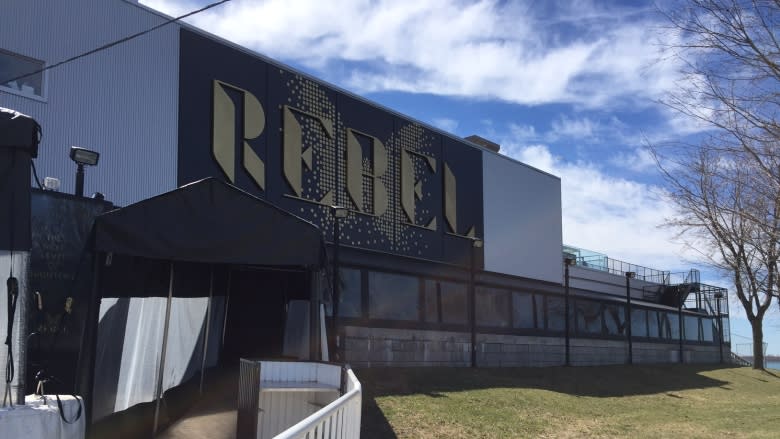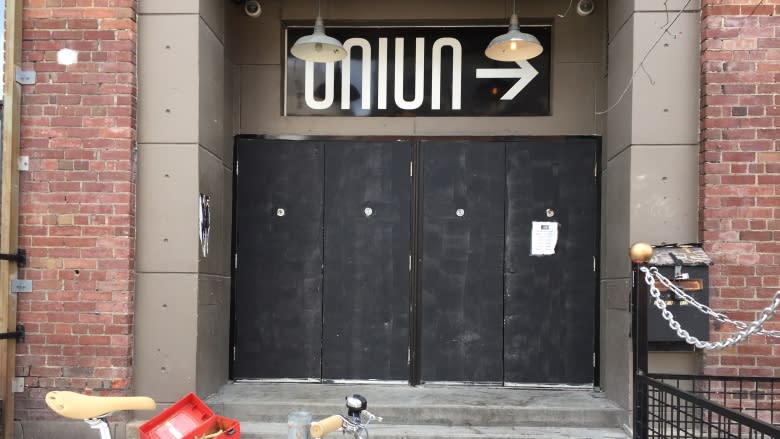Rising concern over nightclub safety after 6 suspected overdoses in 1 night
Six suspected overdoses. Two nightclubs. One 24-year-old woman dead.
A deadly weekend night in Toronto's club scene led police to urge public caution — and now, city councillors are calling for more action to protect clubgoers amid rising overdose deaths throughout the city.
"I don't think anyone's family — anyone's son or daughter — should go off to a big all-ages electronic dance music (concert) and not come home the next day because we didn't have enough harm reduction and prevention," Ward 30 Coun. Paula Fletcher told CBC Toronto.
A woman who died in the early morning hours on Saturday was rushed to hospital after collapsing at Uniun nightclub on Adelaide Street West, and later pronounced dead, according to Toronto police. Police said another woman at the club also collapsed and was taken to hospital in serious condition.
Another person was treated for a suspected overdose on scene at a nightclub, but police couldn't confirm which one.
At least three other suspected overdoses happened in the Lower Don Lands area at Rebel nightclub — a club that was a site of multiple suspected overdoses at least once before.
Back in December, police said a woman died amid multiple suspected overdoses among clubgoers at an electronic dance music concert at the waterfront venue.
The club has also been a lightning rod for controversy thanks to a liquor license application put forward by its owner as part of a plan to expand the site's capacity to 8,000 people.
Fletcher is calling for conditions to be placed on the liquor license, and said nightclubs should have to work with police to do a risk assessment on the venue, have an on-site medical room and ambulance available, and offer free water.
Ward 39 Coun. Jim Karygiannis, vice-chair of the Licensing and Standards Committee, also expressed his concern over what he says is a lack of oversight on Toronto clubs.
"We have a fiduciary responsibility to make sure that Torontonians go home safe after attending night entertainment," he said in a statement released on Saturday.
Tracey Cook, executive Director of Municipal Licensing and Standards, said the overdoses are a growing concern. The city is looking at how to improve safety at nightclubs and other venues, she noted.
"It's definitely on a lot of people's radar," Cook said.
Both clubs involved in Friday night's incidents are owned by INK Entertainment, which issued a statement on Saturday expressing condolences to the deceased woman's family and friends.
"While the causes of these incidents are still undetermined, we are fully cooperating with the police on the investigation," read the statement. "Public safety and security is our top priority at and we will continue to ensure that it remains that way with the highest standard of support."
There is a "zero tolerance drug policy," it continued, which means patrons are denied entry or kicked out of the venue if they're caught with an illegal substance. There is also an EMS company on-site for every concert and club night, the statement said.
Overdose deaths up 73% over past decade
The latest suspected overdoses happened against the backdrop of the ongoing opioid crisis that's sweeping North America, with various street drugs from cocaine to ecstasy being laced with potentially-deadly opioids like fentanyl and carfenantil.
In Toronto, overdose deaths have gone up by 73 per cent over the past decade, according to Toronto Public Health, which has called for wider distribution of life-saving naloxone kits in its new Overdose Action Plan.
And opioids like heroin and fentanyl are playing an increasing role in the city's accidental deaths, according to TPH.
Even small doses of opioids can kill. In particular, carfentanil — which is 100 times more powerful than fentanyl and 10,000 times more potent than morphine — can be lethal in quantities as little as two milligrams.
Toronto police Const. David Hopkinson said police can't confirm what people may have taken on Friday night until toxicology reports come in, and it's also not clear if all the cases are linked.
But what is clear is that more and more, opioids are being mixed with other drugs in Toronto — meaning recreational drug users might have no idea what they're really ingesting, even if what they think they're buying is the pure form of another party drug like MDMA.
"We are seeing almost at a daily basis now that, when we perform tests at our biological lab... individuals are getting exposed to drugs and they have no idea," said Dr. Bernard Le Foll, a clinician scientist at the Centre for Addiction and Mental Health in Toronto.
"A single pill can kill you," he said.



